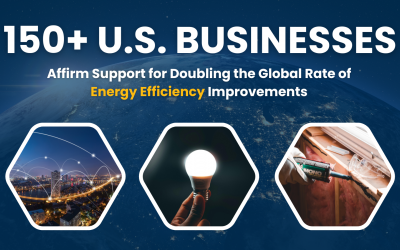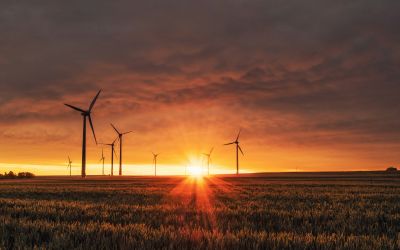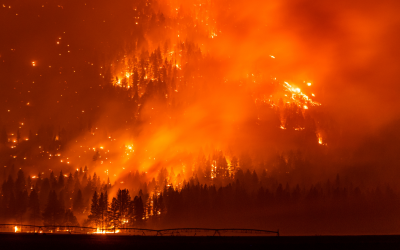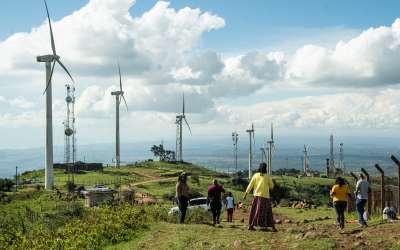COP26 is delayed but we must maintain momentum
With the new dates for COP announced this week, we review our 2nd Digital Event COP26: A Decade to Deliver. As the world emerges from lockdown demanding both a climate and economic recovery, our expert panel dive deep into the debate.
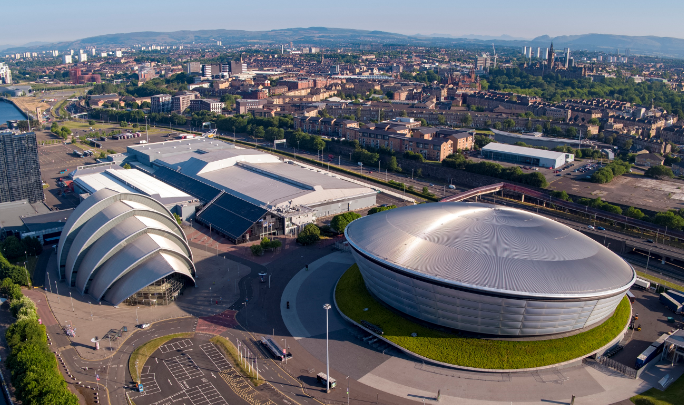
Due to the postponement of COP26 and the Sustainable Innovation Forum, Climate Action launched its Roadmap to COP26 Digital Event Series, a digital event series designed to help maintain momentum and drive commitments on climate action from business and governments at a time when climate and environmental diplomacy has been put on hold and in light of the postponement of COP26 in Glasgow.
With the new dates of COP26 being announced this week and, knowing now the delay will be for almost a year, it has never been more important for businesses and governments to double down on climate commitments and ensure they deliver action throughout 2020 and 2021.
If governments and businesses do not maintain their commitments to action, and if COP26 is not successful in addressing the global climate emergency, the current levels of economic disruption will be our reality in 2050.
And this was the overarching message on Climate Action’s virtual panel ‘COP26: A Decade to Deliver’. Moderator Nik Gowing, Founder and Co-Director for ‘Thinking the Unthinkable’, we welcomed over 1,200 live viewers from all over the world and four high-level panelists to discuss the impact of COVID-19 on climate change, environmental diplomacy in 2020, and what a the delay to COP26 really means for our ability to tackle the climate emergency;
- Mary Robinson, former President-Ireland and chair of the Elders
- Raffaele Mauro Petriccione, Director-General for Climate Action at the European Commission,
- Nigel Topping, the UK-High level Climate Action Champion for COP26
- Chris Stark, Chief Executive of the UK Committee on Climate Change
Each speaker tackled the growing issues arising from the impact of COVID-19, highlighting the ever-present issues surrounding climate change and the need to implement a green recovery in the ambition to ‘build back better’.
Mary Robinson, former President of Ireland and Chair of the Elders, kicked off the virtual panel, taking the opportunity to highlight the impact COVID-19 is having on the inequalities in the world.
“COVID-19 is very destructive,” she said. “It has exacerbated the inequalities in our world. It's not a great leveller.”
“It's actually showing us that our world is both very unequal, very uneven, and it's bringing out the intersectionality… between poverty, race, gender, marginalisation, being a refugee, being an indigenous person, being a person with a disability.”
The virtual panel allowed viewers to participate and engage with the speakers. In response to the question ‘How will the integrated approach towards the SDGs overcome the shortcomings of COP25 in Madrid?’, Mary linked the economic recovery to the SDGs and to the ambition to ‘build back better’.
She said “we need to keep the SDGs front and centre in building back better,” recognising the problems for developing countries as they attempt to grow their economies without emissions and produce as much green energy as possible.
Raffaele Mauro Petriccione, Director-General for Climate Action at the European Commission, joined the discussion, saying “climate change did not go away because we have a health crisis.”
He argued it will still be a prevalent issue long after we have found a solution to this pandemic, declaring that the real issue is ‘what do we do now?’ Petriccione highlighted the importance of the decision to postpone COP26, and COP in 2021 must produce greater ambitions in terms of transformation and must be inclusive in its participation.
Nigel Topping, the UK-High level Climate Action Champion for COP26, was the third speaker in this important discussion in piecing a roadmap to COP26. Topping argued that despite the delays due to the pandemic, “the race to the zero-carbon economy has already started.”
Topping said that this was because of ‘competitiveness’, and stated that before the IPCC’s 1.5 degrees report came out in October 2018, very few companies, cities, businesses and investors had committed to net-zero.
“In the summer last year, some of those commitments started to emerge, at the Secretary General's summit in September there were a few hundred, and between September and December the number doubled.”
When discussing COP26 he stressed that the official business of the COP is largely down to finishing off negotiations of the Paris rulebook. He sees the key phrase as ‘the road to COP26’, as the organisation and planning is the most important aspect of the event, which will then allow for the celebration of ambition.
Moderator Nik Gowing jumped in to ask Nigel an important question: “But as the climate action champion, are you concerned that the momentum has been dissipated and somehow vaporised?”
Nigel acknowledged that the economic short term crisis is occupying leaders’ bandwidth and said: “A concern with a delay would be the loss of momentum. What I'm seeing from the communities and the people is a sense of resolve that we must keep the momentum going.”
“We are seeing more and more companies and cities and investors committing to net-ero, asking that governments match that ambition because it's something that everybody has to do together.”
The last featured speaker to comment on the on-going crisis and plans for COP26 was Chris Stark, Chief Executive of the UK Committee on Climate Change. He began by reflecting on how, due to the pandemic, the CCC advised targets to help the UK achieve net-zero by 2050, have to be revisited.
Despite the temporary changes the pandemic has created, Stark argued that emissions have only fallen by a maximum of 10%. But he said the concentrations of carbon dioxide in the atmosphere are still going up.
“And those concentrations of carbon dioxide are higher than they've been for two or 3 million years,” said Stark.
As the virtual panel drew to a close, Nik Gowing asked the speakers a crucial question; ‘Will COP26 still be a success?’
All panellists believed COP26 would still be a success despite the challenges that 2020 have presented. Nigel Topping added: “I am absolutely convinced it will be a success.”
“We have a daunting task ahead of us. And I'm convinced there are millions of brilliant people working towards it. So I'm convinced that we will succeed.”
This week, the UK Government has announced that COP26 will now take place between 1 and 12 November 2021 in Glasgow.
Alok Sharma, COP26 President, said: “While we rightly focus on fighting the immediate crisis of the Coronavirus, we must not lose sight of the huge challenges of climate change.”
“The steps we take to rebuild our economies will have a profound impact on our societies’ future sustainability, resilience and wellbeing and COP26 can be a moment where the world unites behind a clean resilient recovery.”
The announcement comes after the UK Government sent a letter to the UNFCCC to ask for the year delay on the climate talks.
The letter made it clear that despite COP26 being delayed they were not delaying action and commitment to the environment.
“Postponement of COP26 does not mean postponement of climate action. We must scale up action to respond to the climate emergency. It is vital that all Parties increase ambition by submitting enhanced Nationally Determined Contributions (NDCs) and long-term strategies that chart a path to net zero.”
To watch the virtual panel click here to download the full recording.


